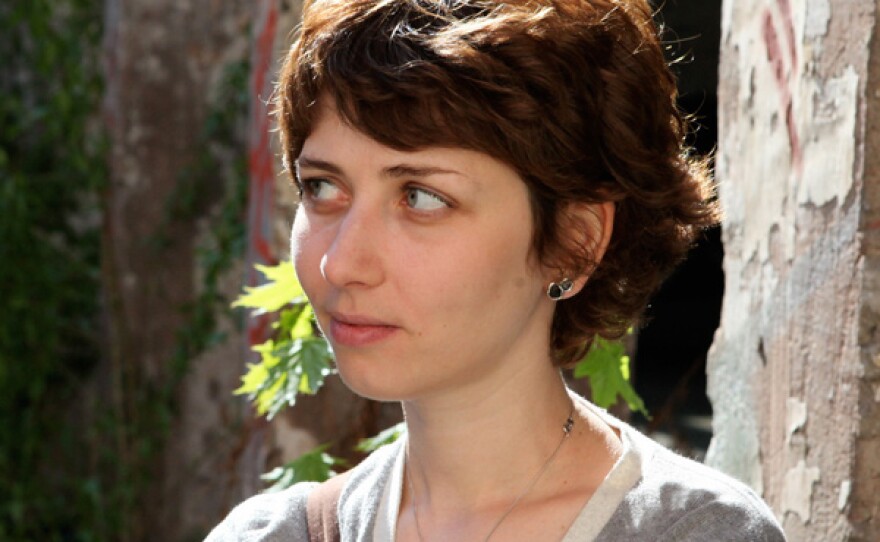Some of the greatest literary achievements of the 19th and 20th centuries are Russian: Alexander Pushkin’s "Eugene Onegin," Dostoyevsky’s "Crime and Punishment," Tolstoy’s "War and Peace" and Solzhenitsyn’s "One Day in the Life of Ivan Denisovich." Readers in the West may have stopped hearing about Russian literature after the USSR collapse, but that doesn’t mean the Russians stopped writing. "Russia’s Open Book: Writing In The Age Of Putin," directed by Paul Mitchell ("Putin, Russia and the West") and Sarah Wallis ("We Were Young and at War"), asks the question: Who is the new Tolstoy, Dostoevsky or Gogol, waiting to be discovered by the English-speaking world? "Russia’s Open Book" presents six candidates.






Hosted by actor, author and activist Stephen Fry ("Sherlock Holmes: A Game of Shadows," "Jeeves and Wooster," "The Hobbit"), "Russia’s Open Book" celebrates contemporary Russian authors who are carrying on one of the world’s great literary traditions — yet doing so on their own terms. Each author is interviewed extensively in the film, with contributions from their literary critics, publishers and peers. Excerpts from the authors’ recent works are brought to life by vivid animated sequences created exclusively for the film and voiced over with dramatic readings in English by Fry.
“You may think Russian literature is no more than a catalogue of suffering and misery and woe, but actually it’s so much more than that. There’s so much joy, there’s so much hope, there’s so much about the human spirit in it,” says Fry in the film. “These six Russian writers and their contemporaries must grapple with the past, live in the present and create fictional worlds that will continue to exist in the future.”
The sheer size of Russia, its brutal climate, the violence of its history and the heroism and genius of its people all have contributed to a world of literature like no other. "Russia’s Open Book" focuses on six writers, creating in Putin’s Russia, whose vibrant, idiosyncratic work continues to gain traction with a global audience:
Dmitry Bykov (b. 1967) − Dmitry Bykov is one of Russia’s most colorful, versatile and recognizable public intellectuals. He writes poetry, fiction, biographies and criticism, and is a co-founder of the Citizen Poet project. His biography of Boris Pasternak won the 2006 National Bestseller and Big Book awards; he won the National Bestseller again in 2011 for "Ostromov, or the Sorcerer’s Apprentice."
Mariam Petrosyan (b. 1969) – Born in Armenia when it was part of the Soviet Union, Mariam Petrosyan started writing her only novel, "The House, In Which…," as a teenager. Once published, it became an instant best-seller and received several awards and nominations, including the 2010 Russian Booker Prize.
Zakhar Prilepin (b. 1975) – Referred to by Newsweek as “Russia’s Young Hemingway,” Prilepin is a veteran of the war in Chechenya, on which his 2005 novel, "Pathologies," is based. His novel, "Sankya," was a finalist for the 2008 Russian Booker Prize, and "Sin" won the Super National Bestseller Prize in 2011. Prilepin writes for the opposition paper New Newspaper and is an activist in the National Bolshevik movement.
Vladimir Sorokin (b. 1955) – Sorokin’s books were banned during the Soviet era. One of Russia’s best-known contemporary writers, Sorokin, described as “the Tarantino of Russian literature,” received the People’s Booker Prize in 2001 for "Sbornik Rasskazov (Collected Stories)". He has written 11 novels, including "Day of the Oprichnik" and "The Blizzard," as well as numerous plays and short stories. His work has been translated throughout the world.
Anna Starobinets (b. 1978) – Compared to Stephen King, Edgar Allen Poe and George Orwell, Starobinets writes short stories and novels that defy the traditional horror genre by crossing over into fantasy, mysticism and futuristic dystopia. Her short story collection, "An Awkward Age," was a finalist for the Russian National Bestseller Prize in 2006 and has been translated into seven languages. She is the author of seven published books, including two novels for children.
Ludmila Ulitskaya (b. 1943) − Ludmila Ulitskaya is one of Russia’s most popular and celebrated writers. Her first novella, "Sonechka," was published in the literary journal "Novyi mir" in 1992 and nominated for the 1993 Russian Booker Prize. "Medea and Her Children" ("Novyi mir") was shortlisted for the Russian Booker in 1997 and "The Kukotsky Case" ("Novyi mir") won the 2001 Russian Booker. "Daniel Stein, Interpreter" won the 2007 Big Book Award and was shortlisted for the 2007 Russian Booker as well as the Russian Booker of the Decade.
"Russia’s Open Book: Writing In The Age Of Putin" is directed by Paul Mitchell, who won a 2012 Peabody Award for the BBC/NatGeo television series "Putin, Russia and the West."
"Russia's Open Book" is on Facebook, and you can follow @russiasopenbook on Twitter.





